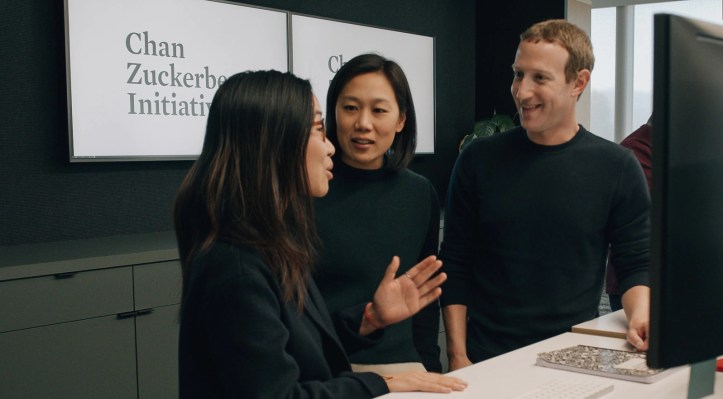It’s been five years since the founding of the Chan Zuckerberg Initiative’s Science program (not CZI itself, which is a year older), which has proven to be quite a generous patron of cutting-edge biotech science and research, and far from winding down, the organization is stepping on the gas as good outcomes from its grants and internal work pile up.
“Working as partners with scientists, patients, and open source communities, we’ve learned so much during these first five years of our science journey about where we can have the best impact in accelerating biomedicine. Now we’re ready to begin our next chapter,” said Priscilla Chan, co-founder and co-CEO of CZI (with husband Mark Zuckerberg, of course), in a press release.
The organization has funded hundreds of experiments, projects, trials and other essential basic research. While we don’t always cover the projects themselves, being rather technical in nature, the value of this focused and highly curated giving is pretty clear. (Though it is not without its critics.)
“We’ve been astonished by the fact that methods in single-cell biology, microscopy, and artificial intelligence that were considered impossible just five years ago are now routine,” said CZI’s head of science, Cori Bargmann. “This work has yielded great insight and laid the foundation for what we plan to do going forward.”
The Initiative has several major announcements to coincide with its anniversary celebrations:
- A new Chan Zuckerberg Institute for Advanced Biomedical Imaging will push forward in one of CZI’s favored areas of research. Imaging at a cellular or even molecular level is a constant source of insight for researchers, but it’s often phenomenally complex and expensive. Much work has been funded by CZI over the years to lower the cost and increase the efficacy of these approaches — and the new Institute will centralize and further accelerate these efforts.
- The CZ Biohub was started as a cross-institutional, cross-discipline platform focused on understanding and modeling the mechanisms behind every disease, with the goal of preventing, curing or managing all of them by the end of the century. Hard to aim higher than that! But it’s clearly a lot of work, so they’re extending the current Biohub’s operations through 2031, and establishing a network of new ones to scale up operations.
- A new research institute at Harvard, the Kempner Institute for the Study of Natural and Artificial Intelligence, will focus on understanding and replicating the human mind. The next generation of AI will likely require insights from how our own brains work — and the truth is we’re kind of in the dark on that part. Maybe they’ll figure it out here.
If you didn’t catch the big fifth anniversary symposium summarizing and discussing the last few years of work by CZI and partners, you should be able to catch up when they post the video here later.
